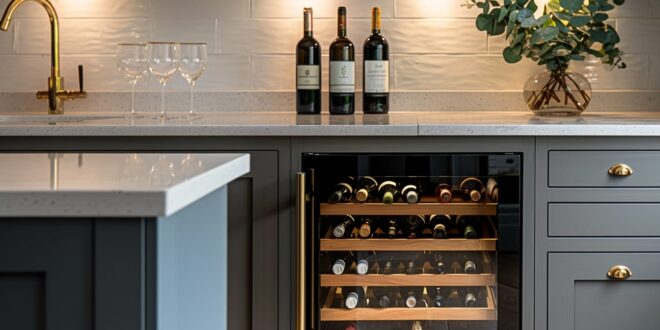The Art of Wine Fridge Kitchen Integration: A Guide to Blending Style and Function
For wine enthusiasts, a wine fridge isn’t just an appliance; it’s a statement. It’s a testament to a refined palate, a love for the grape, and an appreciation for the art of winemaking. But simply owning a wine fridge isn’t enough. The real magic happens when you seamlessly integrate it into your kitchen design, transforming it from a mere storage unit into a sophisticated focal point.
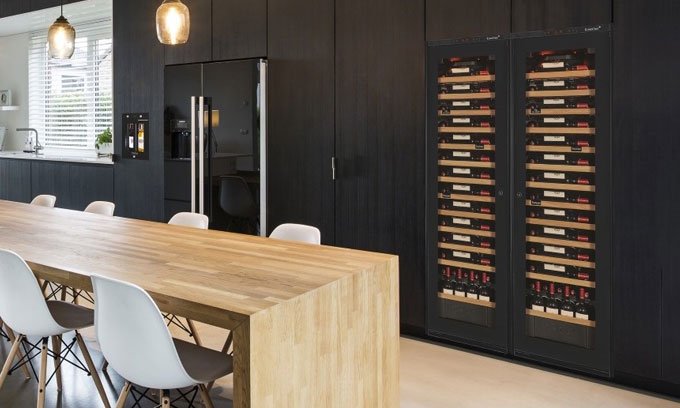
Integrating a wine fridge into your kitchen is more than just shoving it under the counter. It’s about creating a cohesive and aesthetically pleasing space that reflects your personal style and enhances your overall kitchen experience. It’s about striking a balance between form and function, ensuring that your wine fridge not only keeps your bottles at the perfect temperature but also complements the rest of your kitchen’s décor.
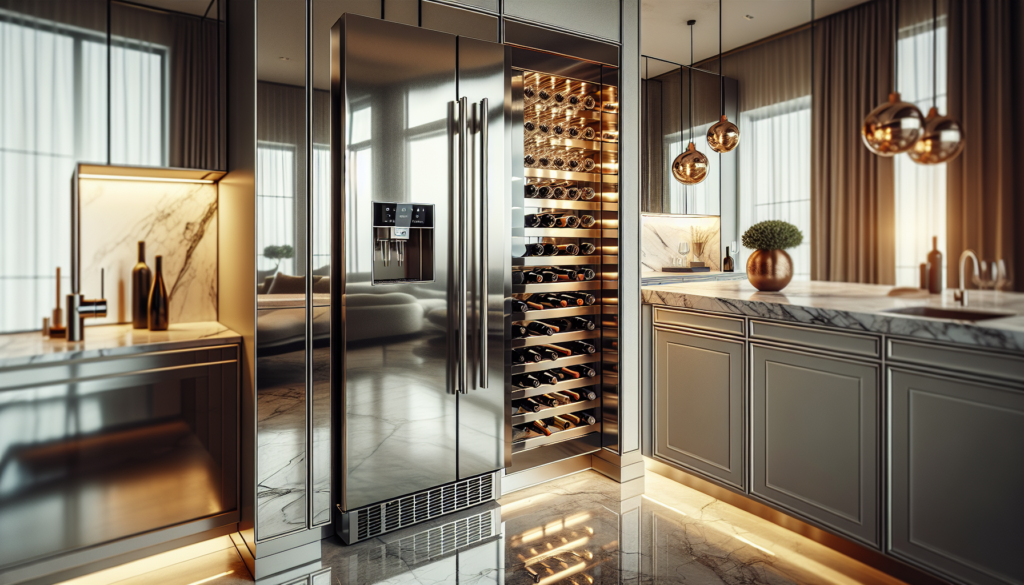
This comprehensive guide will delve into the intricacies of wine fridge kitchen integration, covering everything from choosing the right type of fridge to planning the installation process and selecting the perfect finishing touches. Whether you’re undertaking a full kitchen remodel or simply looking to upgrade your existing setup, this guide will provide you with the knowledge and inspiration you need to create a wine-centric kitchen masterpiece.
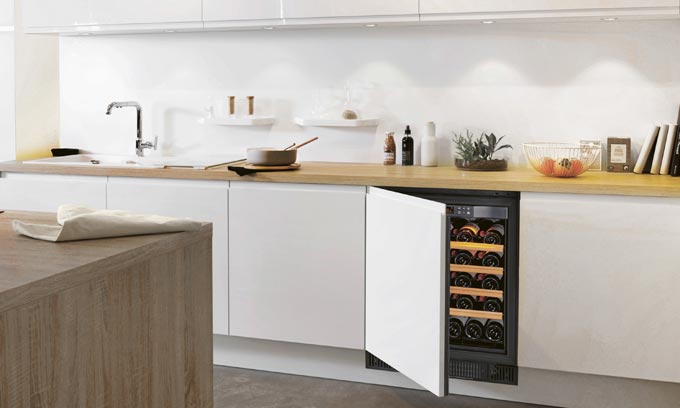
Why Integrate Your Wine Fridge? The Benefits Beyond Aesthetics
While the aesthetic appeal of a seamlessly integrated wine fridge is undeniable, the benefits extend far beyond mere visual gratification. Here are some compelling reasons to consider incorporating a wine fridge into your kitchen design:
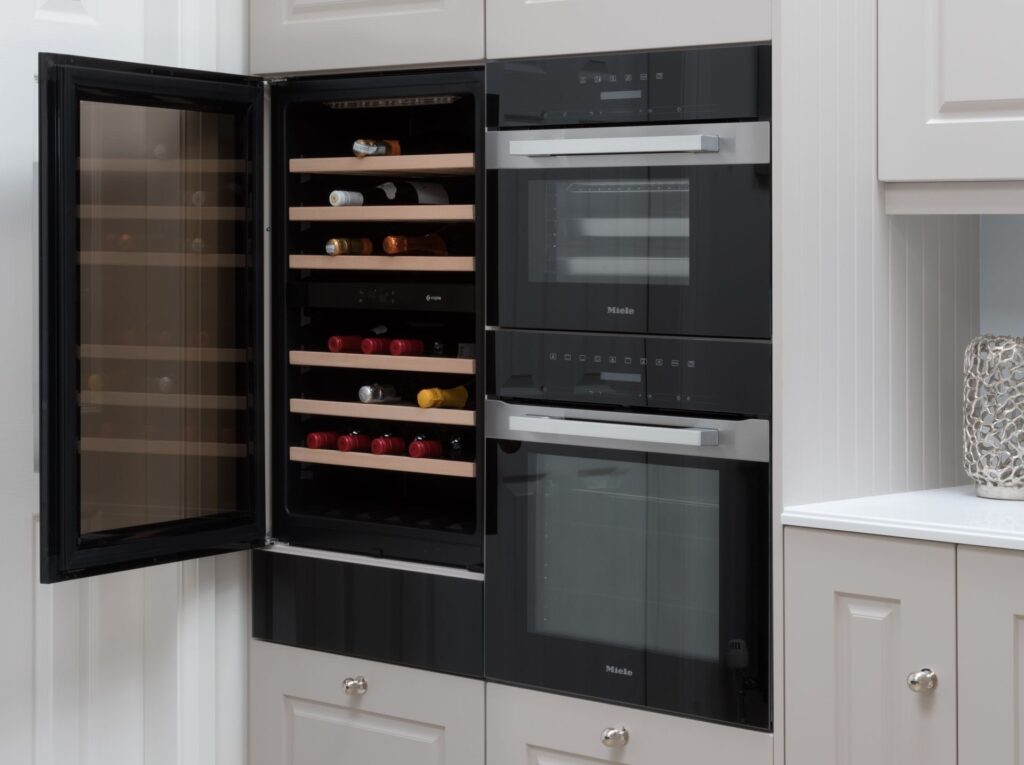
- Space Optimization: In smaller kitchens, maximizing space is crucial. Integrating a wine fridge, especially a built-in model, can free up valuable counter space and eliminate the need for a bulky freestanding unit.
- Temperature Control: Wine fridges are specifically designed to maintain the ideal temperature and humidity levels for wine storage, ensuring that your bottles age gracefully and are always ready to be enjoyed. This is a significant advantage over storing wine in a regular refrigerator, which is typically too cold and dry.
- Preservation of Wine Quality: Fluctuations in temperature and humidity can damage wine, affecting its flavor and aroma. A wine fridge provides a stable environment that protects your investment and ensures that your wine tastes its best.
- Enhanced Organization: Wine fridges often feature specialized shelving and storage options that allow you to organize your collection by type, vintage, or varietal. This makes it easy to find the perfect bottle for any occasion.
- Increased Home Value: A well-designed kitchen with a seamlessly integrated wine fridge can increase the value of your home, making it a worthwhile investment for the future. It signals a sophisticated lifestyle and attention to detail.
- Convenience: Having your wine readily accessible in the kitchen makes entertaining and enjoying a glass of wine with dinner more convenient. No more running to the basement or a separate storage area.
Types of Wine Fridges for Kitchen Integration: Finding the Perfect Fit
Choosing the right type of wine fridge is the first crucial step in the integration process. There are several options to consider, each with its own advantages and disadvantages:
Built-In Wine Fridges: The Epitome of Seamless Integration
Built-in wine fridges are designed to be installed directly into cabinetry, creating a flush and seamless appearance. They typically feature front venting, which allows them to be enclosed without overheating. This is the most aesthetically pleasing option, but it also tends to be the most expensive. They require precise measurements and professional installation to ensure a perfect fit. Imagine a sleek, modern kitchen with a wine fridge seamlessly integrated into the island, creating a sophisticated and functional focal point.
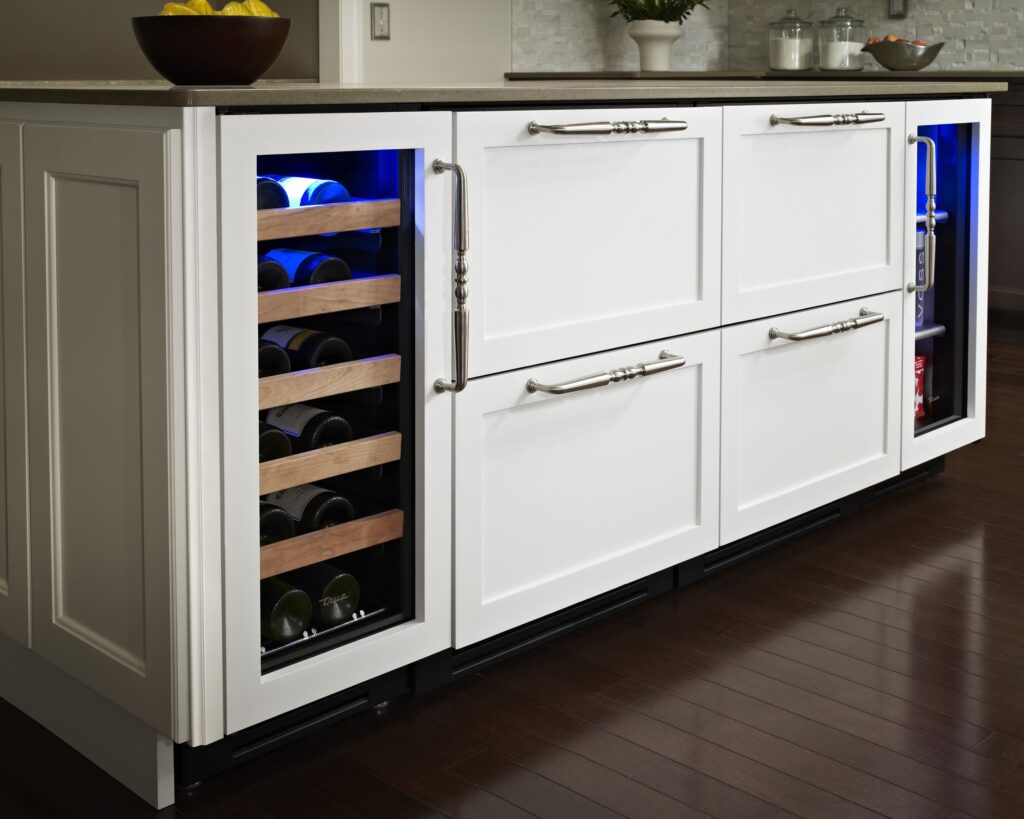
Consider the ventilation requirements carefully. While front-venting is essential for built-in models, ensure that there’s still adequate space around the fridge for proper airflow. Overcrowding can lead to overheating and reduced efficiency.
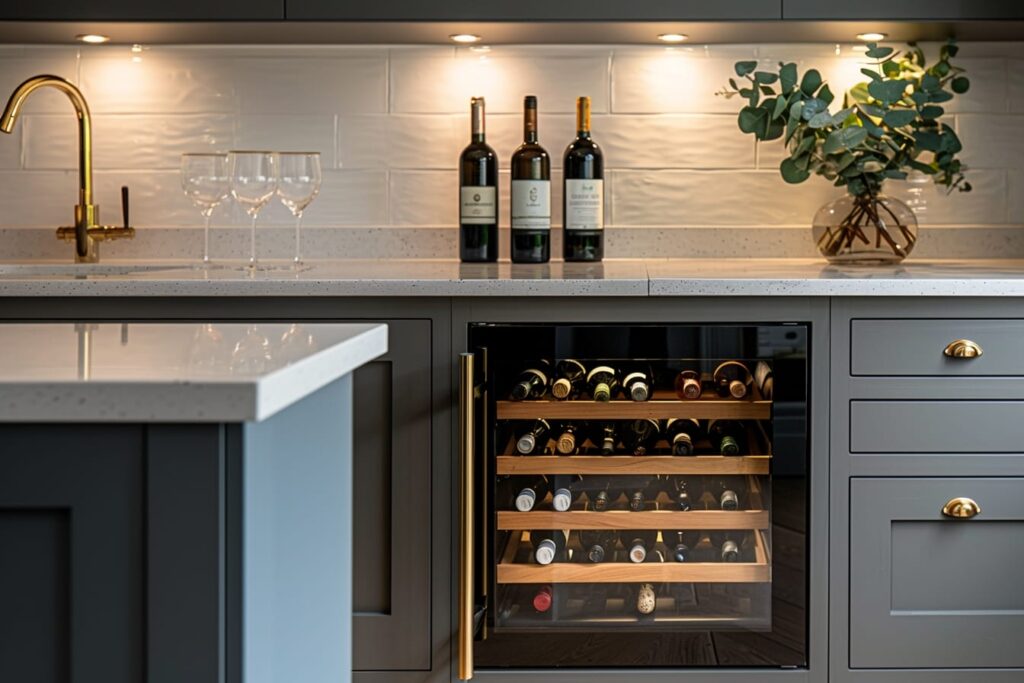
Undercounter Wine Fridges: A Space-Saving Solution
Undercounter wine fridges are similar to built-in models but are designed to fit under standard kitchen counters. They are a great option for smaller kitchens or for those who want to maximize counter space. Like built-in models, they typically feature front venting and require professional installation. They offer a clean and integrated look, blending seamlessly with your existing cabinetry.
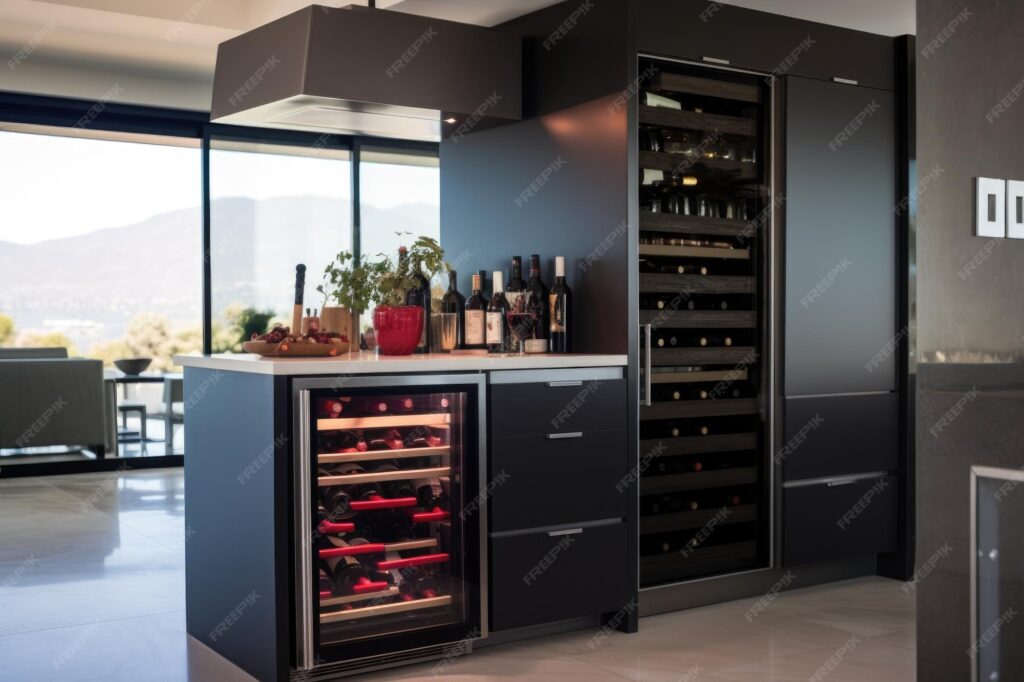
Pay attention to the height of the undercounter wine fridge to ensure it fits comfortably under your counter without requiring modifications to your cabinetry. Measure carefully and compare the dimensions of the fridge with the available space.
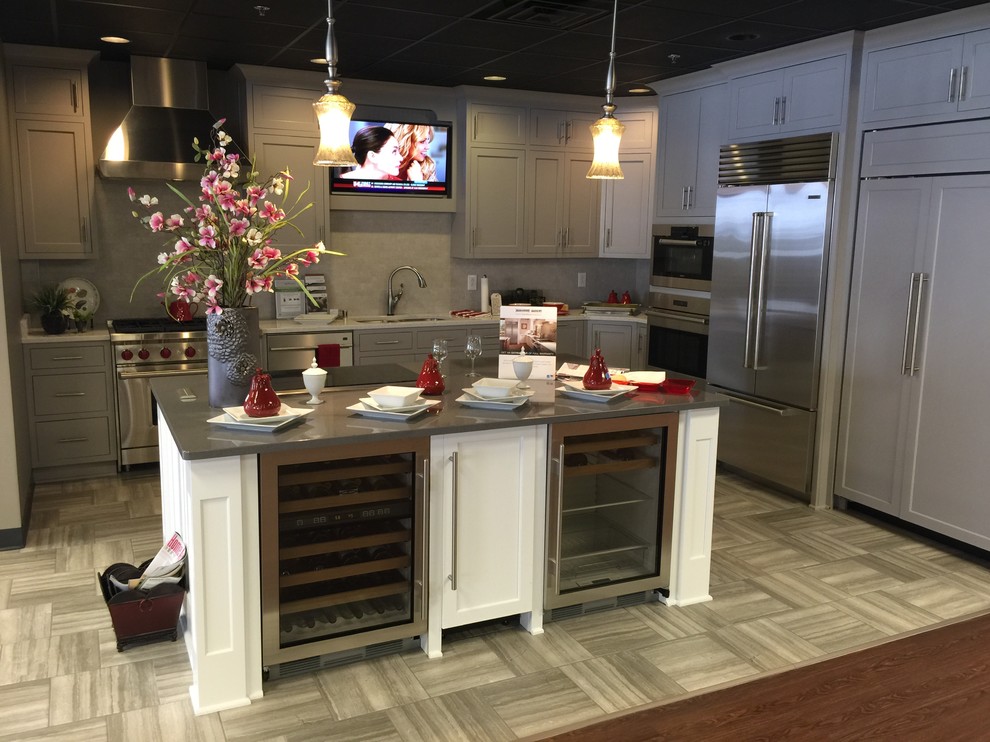
Freestanding Wine Fridges: Versatile and Budget-Friendly
Freestanding wine fridges are not designed to be integrated into cabinetry. They can be placed anywhere there is an electrical outlet and adequate ventilation. While they don’t offer the same seamless look as built-in or undercounter models, they are a more affordable and versatile option. However, integrating them requires more creative solutions to blend them into the kitchen décor. This might involve placing them at the end of a cabinet run or creating a dedicated wine storage area.
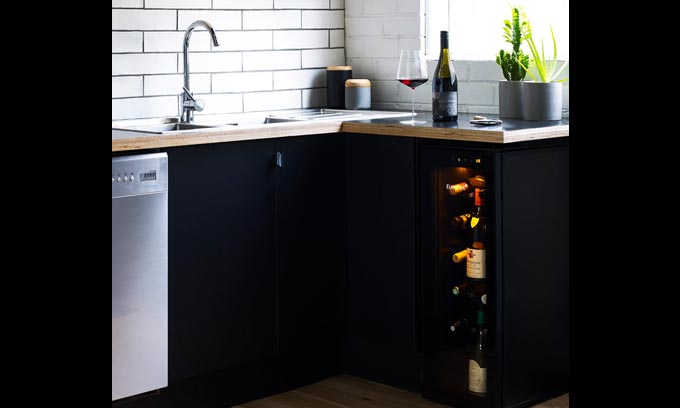
When integrating a freestanding wine fridge, consider using decorative panels or screens to conceal the sides and back of the unit. This will help it blend in with the surrounding cabinetry and create a more cohesive look. You can also use plants or other decorative items to soften the edges and make it feel more integrated into the space.
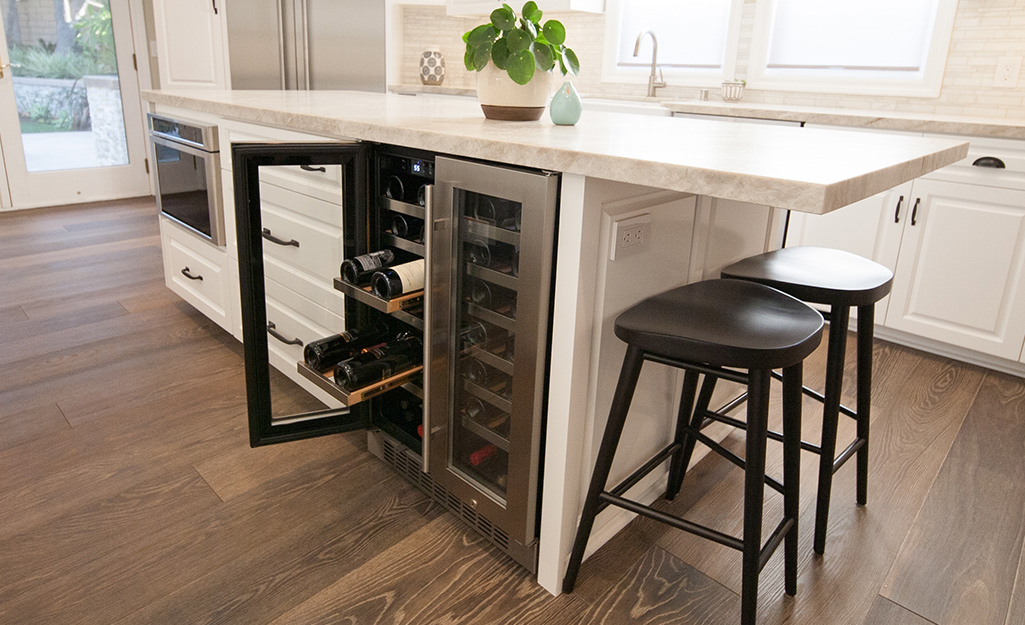
Dual-Zone Wine Fridges: Catering to Different Wine Varieties
For serious wine aficionados who enjoy both red and white wines, a dual-zone wine fridge is an excellent choice. These fridges feature two separate compartments with independent temperature controls, allowing you to store different types of wine at their optimal temperatures. This ensures that your reds are served at the perfect room temperature while your whites are chilled to crisp perfection.
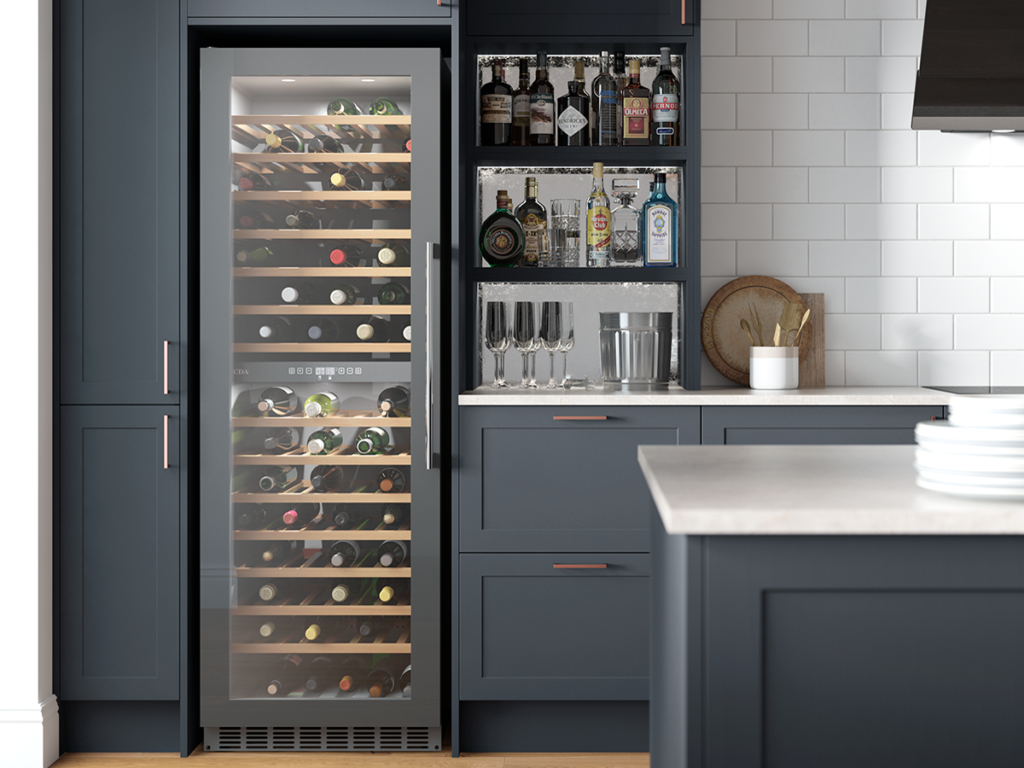
Dual-zone wine fridges are a valuable investment for those who appreciate the nuances of different wine varieties and want to ensure that each bottle is stored and served at its best. They offer unparalleled flexibility and control over your wine storage environment.
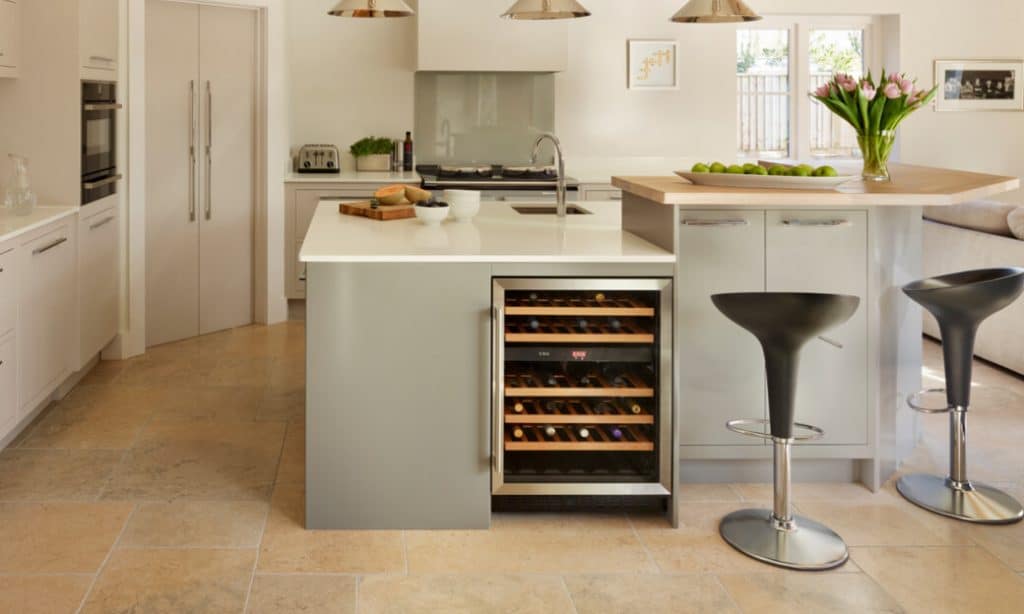
Planning Your Wine Fridge Integration: A Step-by-Step Guide
Once you’ve chosen the right type of wine fridge, it’s time to start planning the integration process. Here’s a step-by-step guide to help you get started:
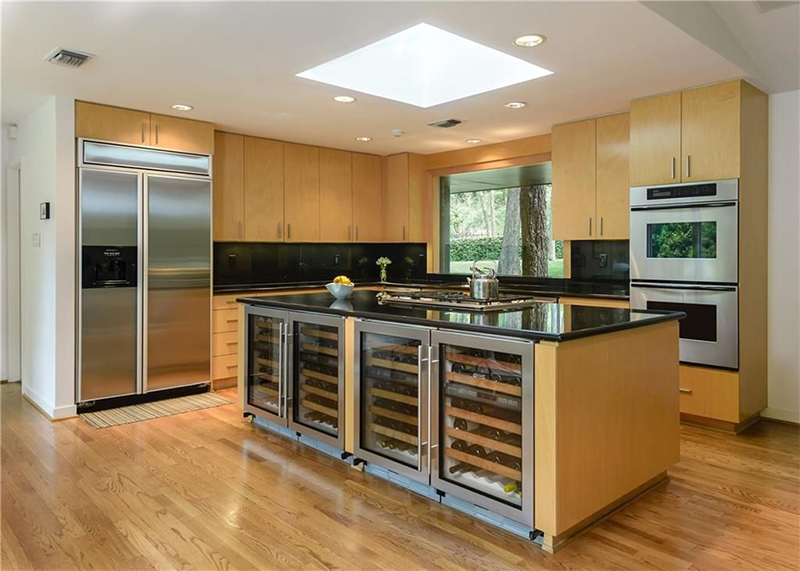
1. Assess Your Kitchen Layout: Identifying the Ideal Location
The first step is to carefully assess your kitchen layout and identify the ideal location for your wine fridge. Consider factors such as:
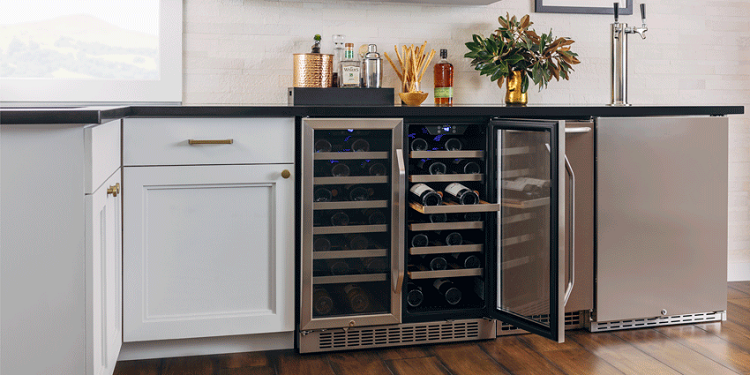
- Proximity to the Dining Area: Ideally, your wine fridge should be located close to the dining area or other areas where you typically enjoy wine. This will make it more convenient to access your wine collection when entertaining or relaxing.
- Accessibility: Make sure the location is easily accessible and doesn’t obstruct walkways or other important areas of the kitchen.
- Electrical Outlet: Ensure there is a readily available electrical outlet nearby. If not, you may need to hire an electrician to install one.
- Ventilation: As mentioned earlier, proper ventilation is crucial for wine fridge performance. Make sure the location allows for adequate airflow around the unit.
- Sunlight: Avoid placing your wine fridge in direct sunlight, as this can raise the internal temperature and damage your wine.
Think about the flow of your kitchen and how the wine fridge will fit into that flow. Do you want it to be a prominent feature, or do you prefer it to blend in more discreetly? The location you choose will have a significant impact on the overall aesthetic of your kitchen.
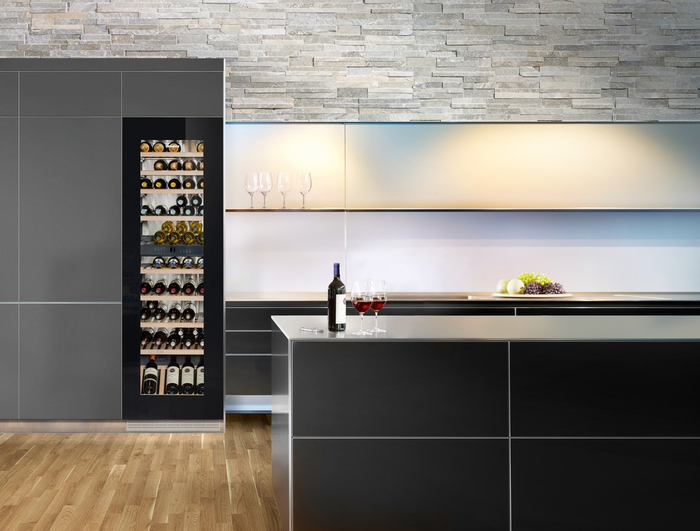
2. Measure, Measure, Measure: Ensuring a Perfect Fit
Accurate measurements are essential for a successful wine fridge integration. Measure the dimensions of the wine fridge carefully, including the width, height, and depth. Then, measure the available space in your kitchen to ensure that the fridge will fit comfortably. Don’t forget to account for any necessary clearances for ventilation and door swing.
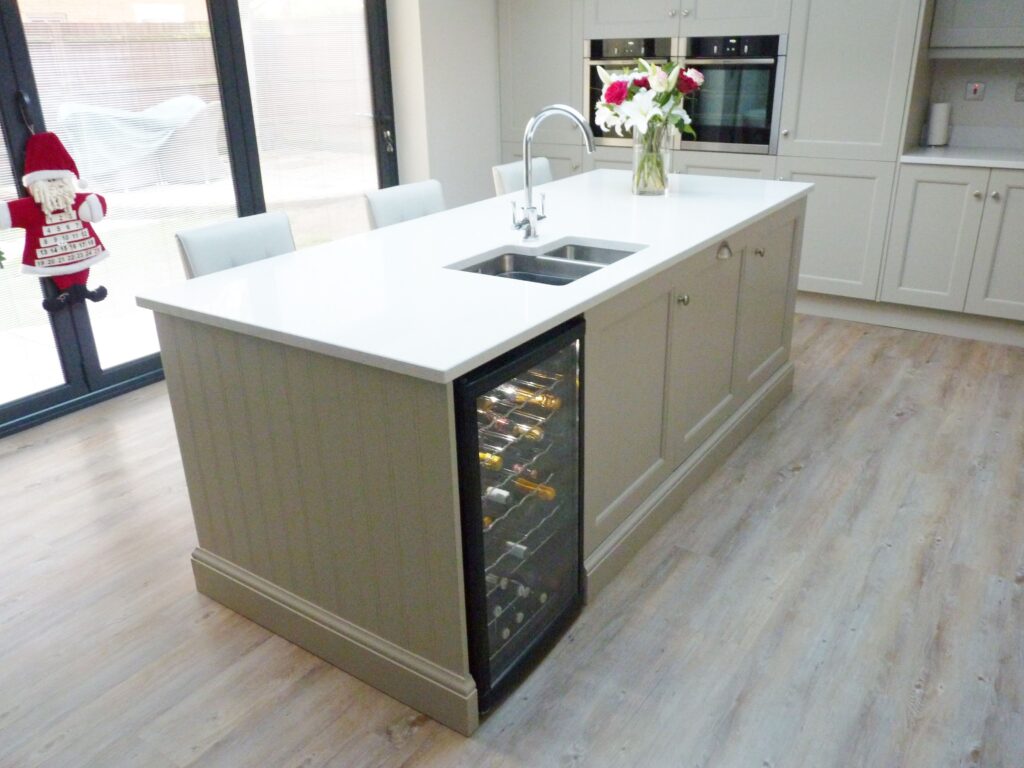
It’s always better to err on the side of caution and choose a wine fridge that is slightly smaller than the available space. This will give you some wiggle room during installation and prevent any unpleasant surprises.
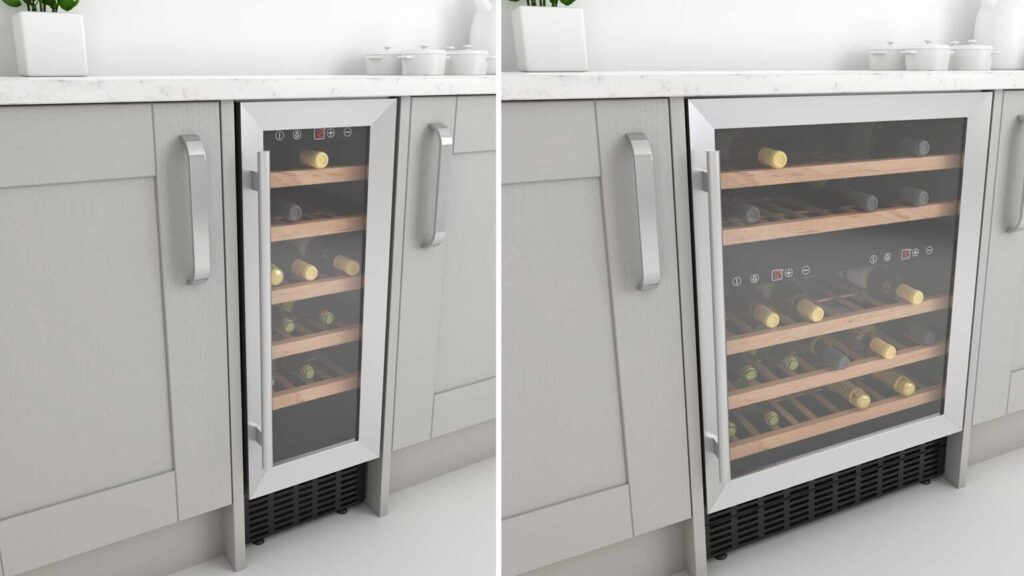
3. Cabinetry Considerations: Custom vs. Stock Cabinets
If you’re planning to integrate your wine fridge into cabinetry, you’ll need to decide whether to use custom or stock cabinets. Custom cabinets offer the most flexibility and allow you to create a truly seamless and personalized look. However, they are also more expensive than stock cabinets.
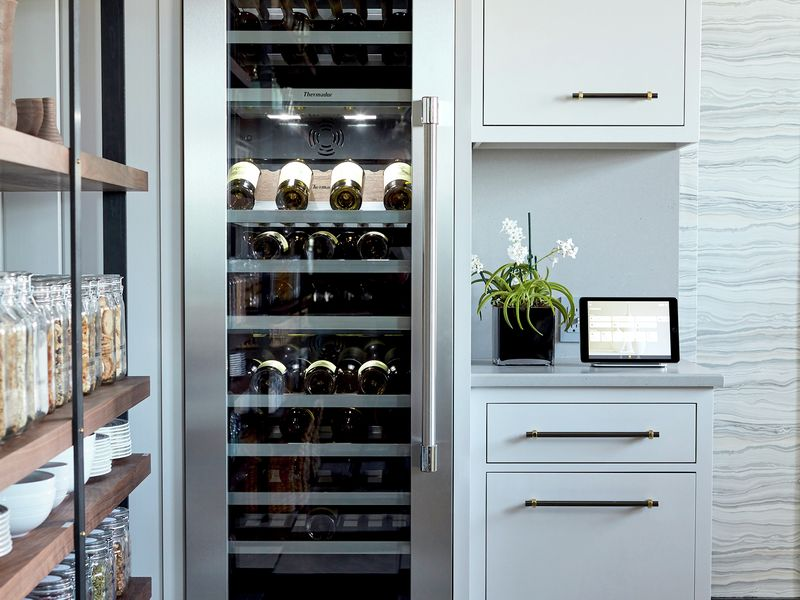
Stock cabinets are a more affordable option, but they may require some modifications to accommodate the wine fridge. You may need to adjust the size of the cabinet opening or add filler panels to create a flush appearance. Be sure to choose cabinets that are compatible with the dimensions of your wine fridge.
4. Electrical and Plumbing: Ensuring Safe and Functional Installation
Depending on the type of wine fridge you choose, you may need to make some electrical and plumbing modifications to your kitchen. Most wine fridges require a dedicated electrical outlet, and some models may also require a water line for humidity control. It’s important to consult with a qualified electrician and plumber to ensure that the installation is safe and compliant with local building codes.
Don’t attempt to perform electrical or plumbing work yourself unless you are a licensed professional. Improper installation can be dangerous and could void your warranty.
5. Ventilation: Preventing Overheating and Maintaining Efficiency
Proper ventilation is crucial for the performance and longevity of your wine fridge. Make sure the unit has adequate space for airflow around it. Built-in and undercounter models typically feature front venting, which allows them to be enclosed in cabinetry. However, it’s still important to ensure that there is sufficient space around the unit for air to circulate.
Freestanding wine fridges require even more ventilation. Avoid placing them in enclosed spaces or near heat sources. If you are integrating a freestanding wine fridge into cabinetry, make sure to leave ample space around the unit for airflow.
Design Ideas: Creating a Stunning Wine-Centric Kitchen
Now for the fun part: designing your wine fridge integration to create a stunning and functional kitchen space. Here are some inspiring design ideas:
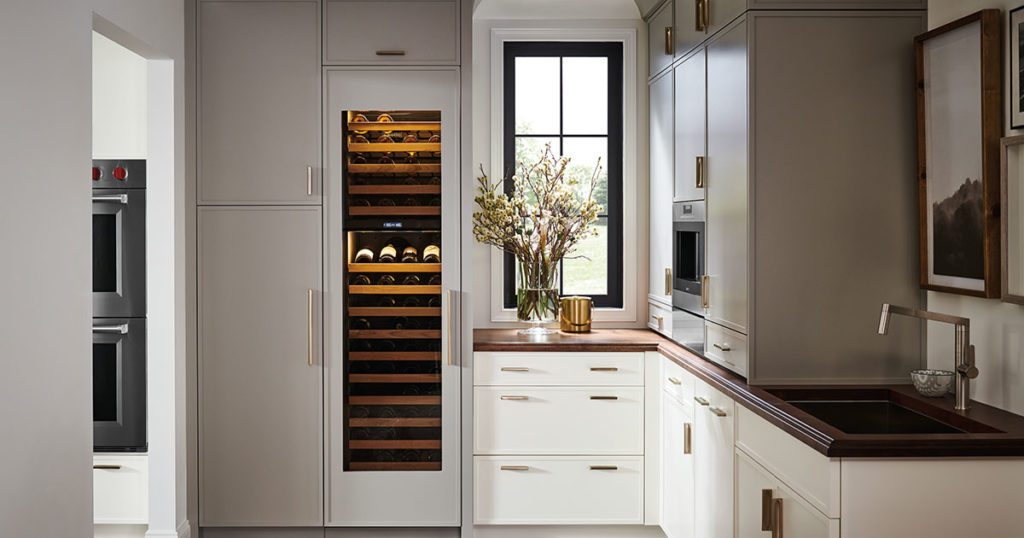
The Wine Wall: A Dramatic Statement Piece
For the ultimate wine enthusiast, a wine wall is a breathtaking addition to any kitchen. This involves creating a dedicated wall of wine storage, often using custom cabinetry and lighting to showcase your collection. A wine fridge can be integrated seamlessly into the wine wall, providing temperature-controlled storage for your most prized bottles.
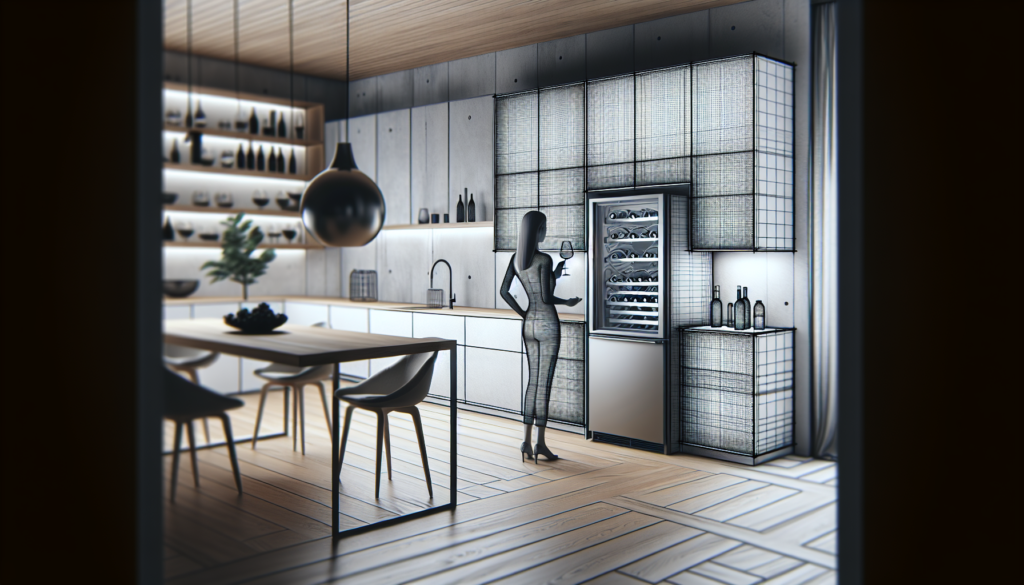
A wine wall is a significant investment, but it can transform your kitchen into a true showpiece. It’s a statement of your passion for wine and a testament to your impeccable taste.
The Wine Island: A Social Hub for Wine Lovers
Integrating a wine fridge into a kitchen island creates a convenient and social hub for wine lovers. This allows you to store and serve wine while interacting with guests or preparing meals. The island can also be used as a tasting station, providing a dedicated space for enjoying wine with friends and family.
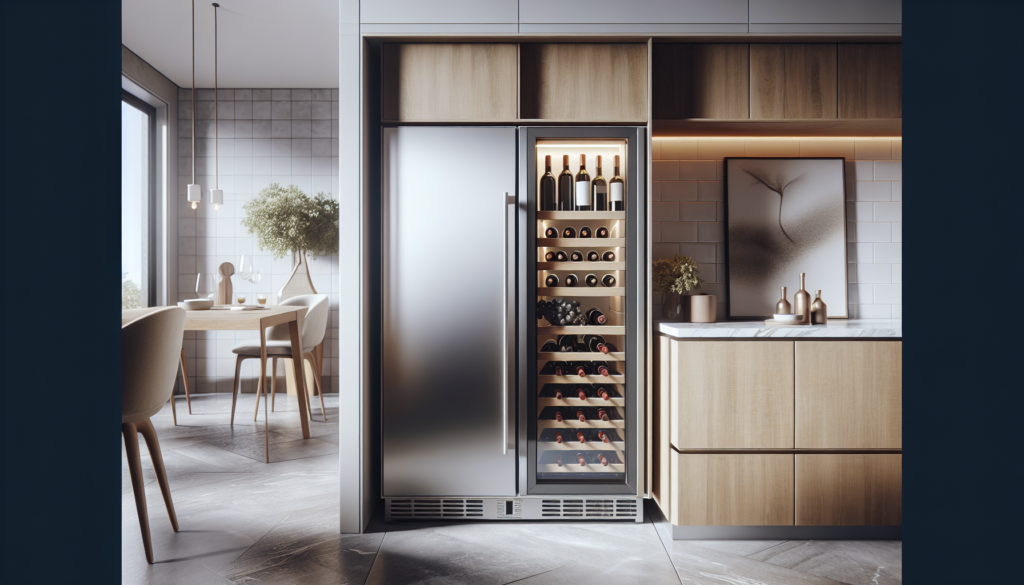
A wine island is a great way to maximize space and create a functional and stylish kitchen environment. It’s perfect for entertaining and for enjoying a glass of wine in a relaxed and informal setting.
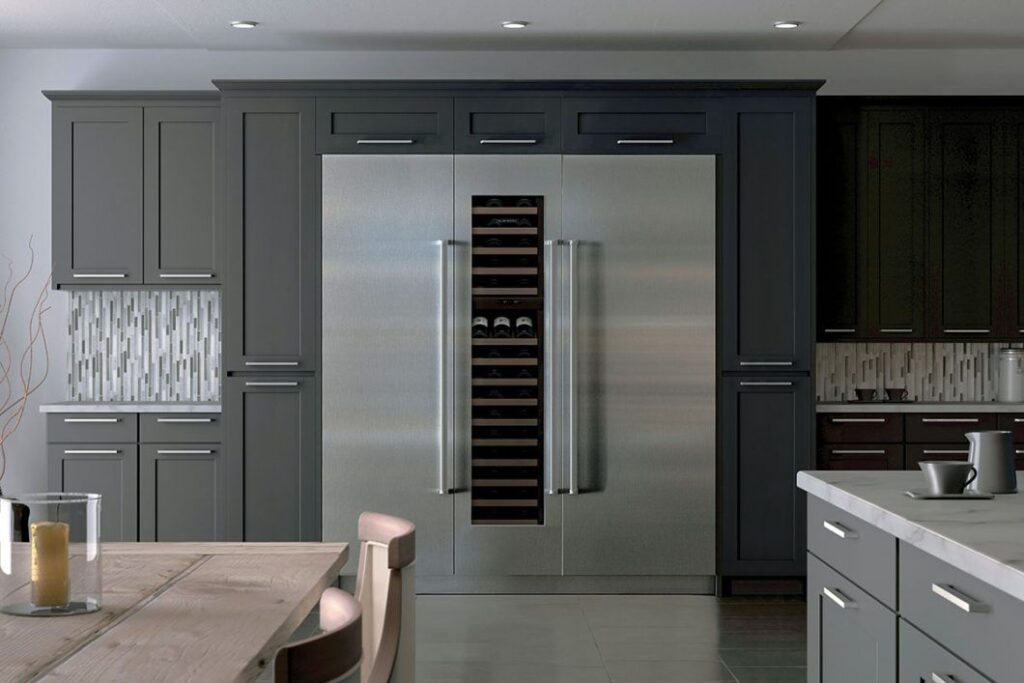
The Under-Counter Wine Bar: A Discreet and Elegant Solution
An under-counter wine bar is a discreet and elegant way to integrate a wine fridge into your kitchen. This involves installing an undercounter wine fridge in a cabinet or bar area, creating a seamless and unobtrusive look. This is a great option for smaller kitchens or for those who prefer a more minimalist aesthetic.
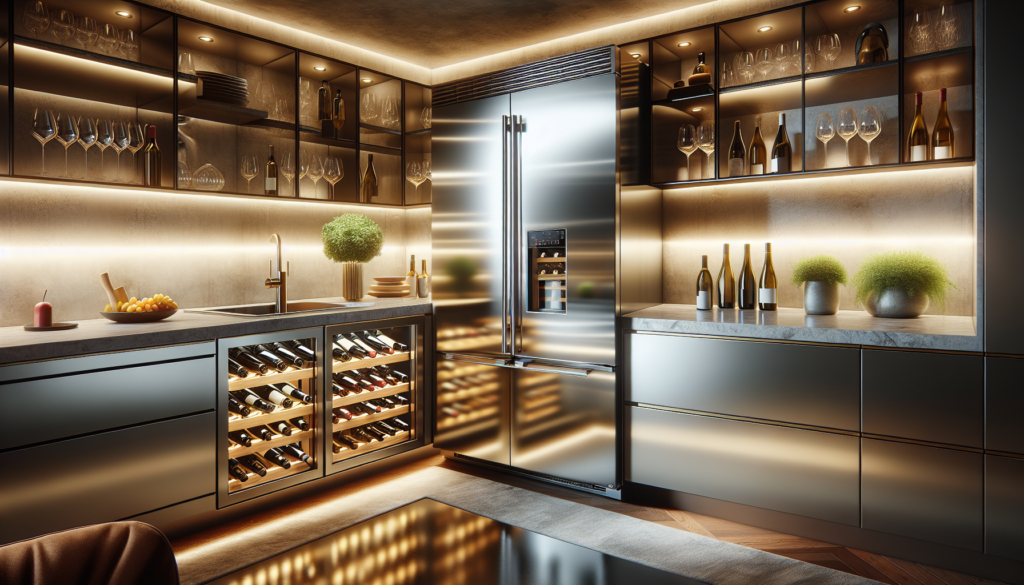
An under-counter wine bar is a perfect way to add a touch of sophistication to your kitchen without sacrificing valuable space. It’s a subtle yet impactful addition that enhances the overall ambiance of your home.
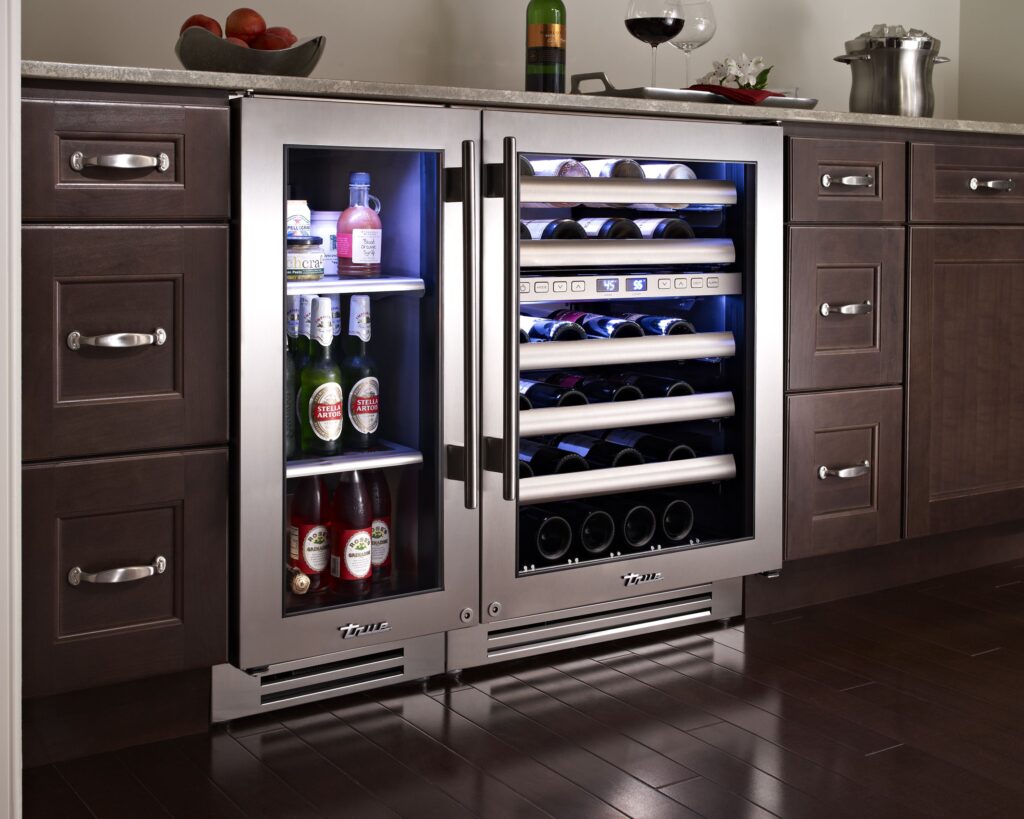
Mixing and Matching: Blending Styles for a Unique Look
Don’t be afraid to mix and match different styles to create a unique and personalized look. For example, you could pair a modern wine fridge with traditional cabinetry or a rustic wine rack with sleek, contemporary countertops. The key is to create a cohesive and balanced design that reflects your personal style.
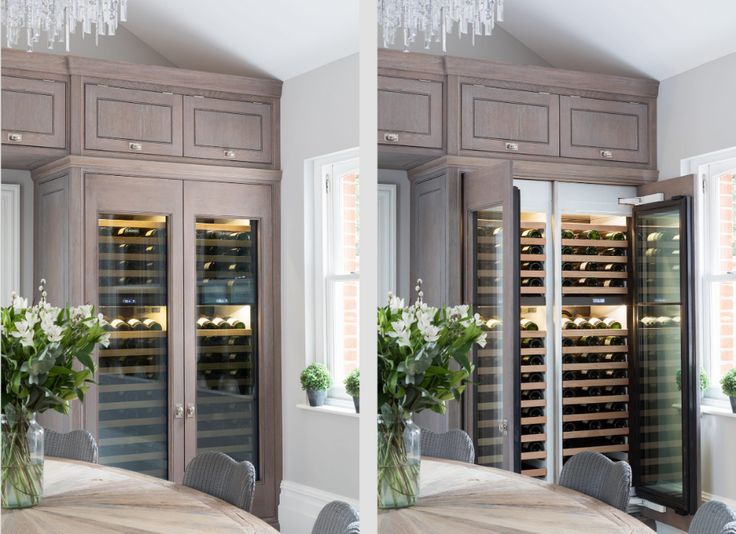
Experiment with different textures, colors, and materials to create a truly one-of-a-kind kitchen space. Let your creativity flow and don’t be afraid to break the rules.

Lighting and Ambiance: Setting the Mood for Wine Enjoyment
Lighting plays a crucial role in creating the right ambiance for wine enjoyment. Consider adding accent lighting to highlight your wine fridge and showcase your collection. LED strip lights are a great option for illuminating the interior of the fridge, while recessed lighting can be used to create a warm and inviting atmosphere in the surrounding area.
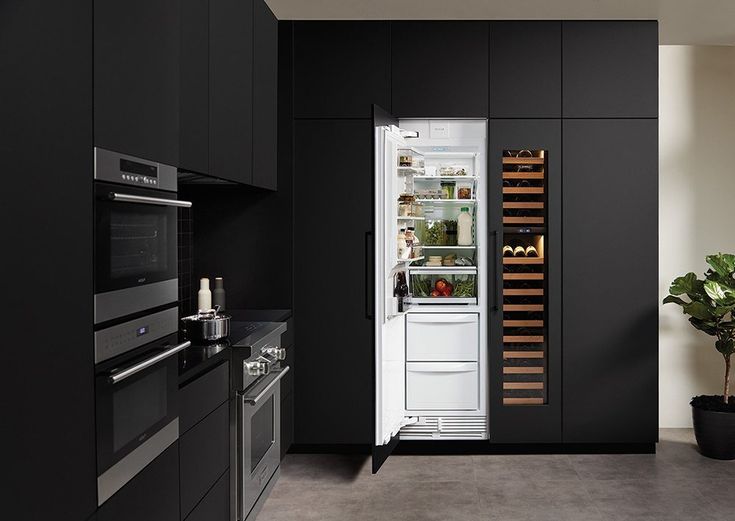
Choose lighting fixtures that complement the style of your kitchen and create a mood that is conducive to relaxation and conversation. Dimmer switches are a great way to adjust the lighting to suit different occasions.
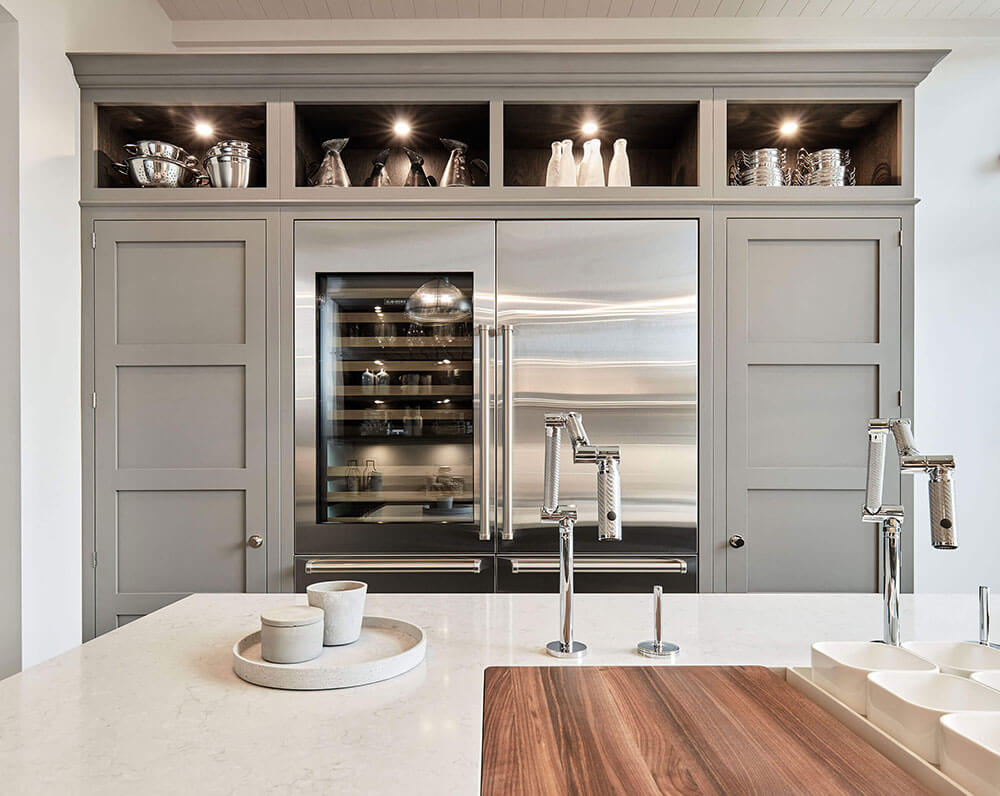
Finishing Touches: Accessorizing Your Wine Fridge Integration
The finishing touches can make all the difference in creating a truly stunning wine fridge integration. Consider adding accessories such as:
- Wine Racks: Wine racks are a great way to organize and display your wine collection. Choose racks that complement the style of your kitchen and provide adequate support for your bottles.
- Glassware: Display your favorite wine glasses near the wine fridge for easy access. Consider using a stemware rack to keep your glasses organized and protected.
- Wine Accessories: Keep essential wine accessories such as corkscrews, bottle stoppers, and wine pourers close at hand. These items can be stored in a drawer or cabinet near the wine fridge.
- Artwork: Add artwork or decorative items to personalize the space and create a more inviting atmosphere. Choose pieces that reflect your personal style and complement the overall design of your kitchen.
Maintenance and Care: Keeping Your Wine Fridge in Top Condition
To ensure that your wine fridge continues to perform at its best, it’s important to perform regular maintenance and care. This includes:
- Cleaning the Interior: Clean the interior of the wine fridge regularly with a mild detergent and water. Avoid using harsh chemicals or abrasive cleaners, as these can damage the finish.
- Cleaning the Exterior: Clean the exterior of the wine fridge with a soft cloth and a mild cleaning solution. Avoid using abrasive cleaners or scouring pads.
- Defrosting: Some wine fridges require manual defrosting. Follow the manufacturer’s instructions for defrosting the unit.
- Checking the Door Seal: Inspect the door seal regularly to ensure that it is tight and airtight. A damaged door seal can allow warm air to enter the fridge, which can affect the temperature and humidity levels.
- Replacing the Filter: Some wine fridges have a filter that needs to be replaced periodically. Follow the manufacturer’s instructions for replacing the filter.
Professional Installation vs. DIY: Knowing Your Limits
While some aspects of wine fridge kitchen integration can be done yourself, others are best left to the professionals. Electrical and plumbing work should always be performed by licensed professionals to ensure safety and compliance with building codes. Cabinetry modifications may also require professional expertise, especially if you are working with custom cabinets.
If you are unsure about any aspect of the installation process, it’s always best to err on the side of caution and hire a professional. This will ensure that the job is done correctly and that your wine fridge is installed safely and securely.
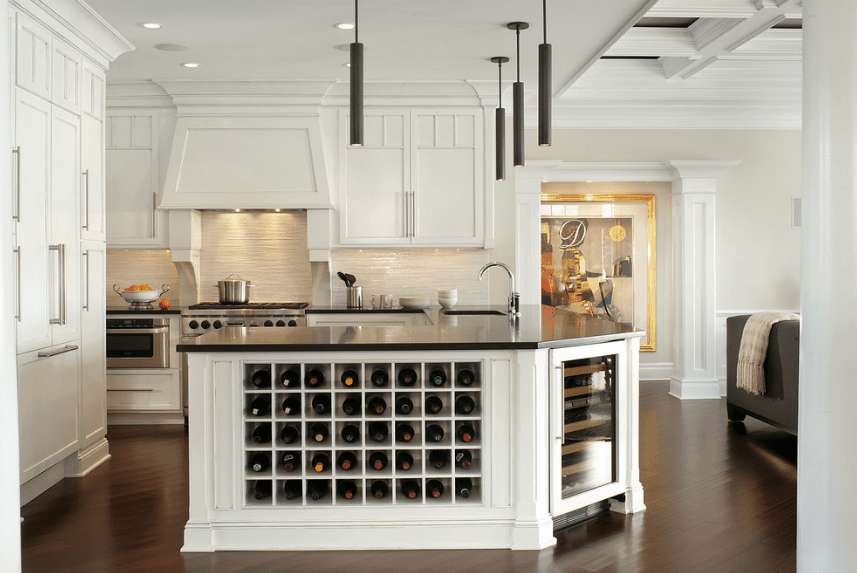
Cost Considerations: Budgeting for Your Wine Fridge Integration
The cost of wine fridge kitchen integration can vary widely depending on the type of wine fridge you choose, the extent of the modifications you make to your kitchen, and whether you hire professional installers. Here’s a breakdown of the key cost considerations:
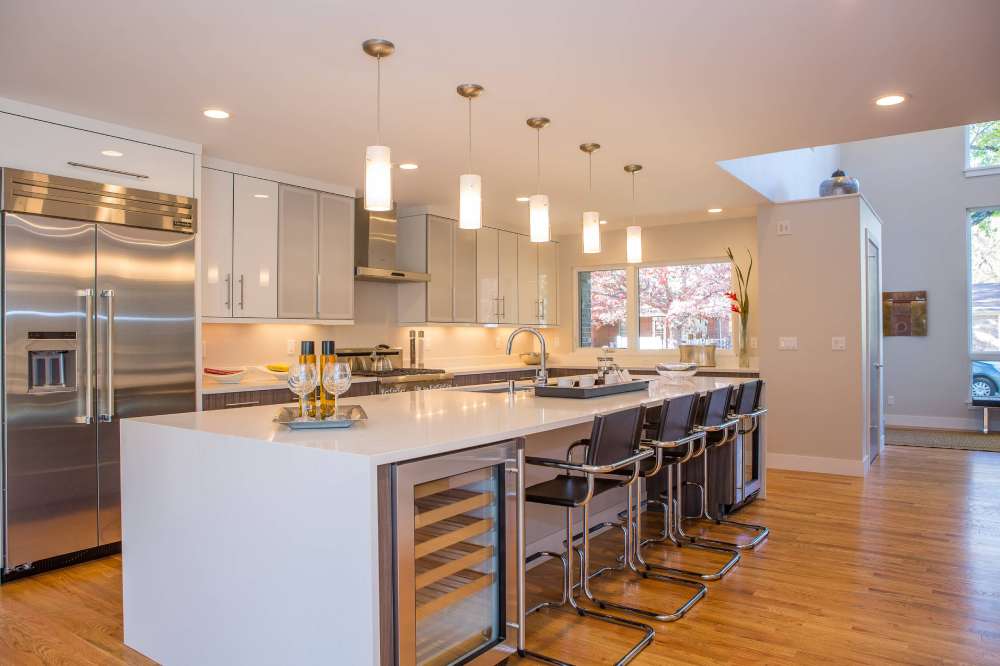
- Wine Fridge Price: The price of a wine fridge can range from a few hundred dollars to several thousand dollars, depending on the size, features, and brand.
- Cabinetry Costs: Custom cabinets are more expensive than stock cabinets. The cost of cabinetry will also depend on the size and complexity of the design.
- Installation Costs: Professional installation can add a significant cost to the project. The cost will depend on the complexity of the installation and the hourly rate of the professionals you hire.
- Electrical and Plumbing Costs: Electrical and plumbing modifications can also add to the overall cost. The cost will depend on the extent of the modifications and the hourly rate of the electricians and plumbers you hire.
Before starting your project, it’s important to create a detailed budget that outlines all of the potential costs. This will help you stay on track and avoid any unpleasant surprises.
Conclusion: Elevate Your Kitchen with Wine Fridge Integration
Integrating a wine fridge into your kitchen is a rewarding investment that can enhance both the functionality and aesthetic appeal of your home. By carefully planning the integration process and choosing the right type of wine fridge, you can create a stunning wine-centric kitchen that reflects your personal style and elevates your overall kitchen experience.
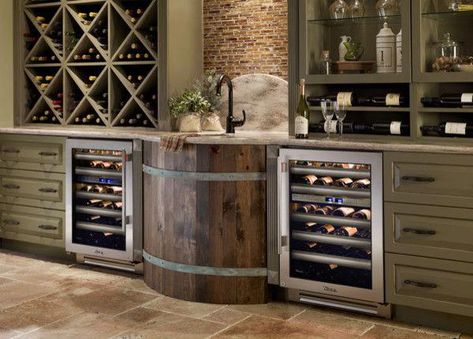
From space optimization and temperature control to enhanced organization and increased home value, the benefits of wine fridge kitchen integration are numerous. So, embrace the art of seamless integration and transform your kitchen into a sophisticated and inviting space where you can enjoy your favorite wines in style.
 Nimila
Nimila
